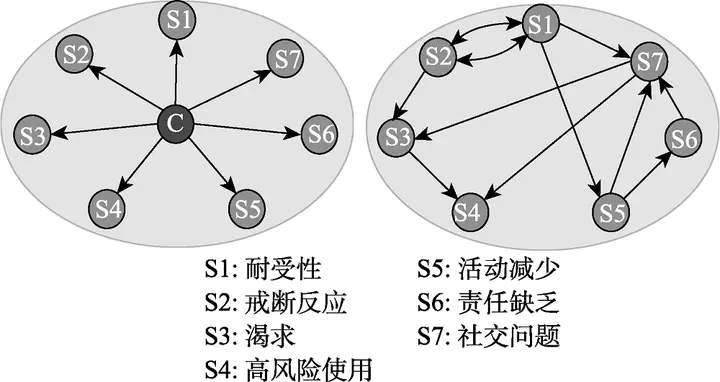 Image credit: Fig1
Image credit: Fig1
摘要
Substance addiction involves multiple factors, ranging from biological, social, to cultural. But the dominant biological reductionism-based explanations focus primarily on the brain, potentially hindering a more comprehensive and inclusive research of substance addiction and its recovery. We propose that network theory, focusing on feedback loops formed by interactions between myriad psychological disorder variables, will provide a better holistic framework to understand the complexity of substance addiction. Applying network theory to substance addiction may provide new insights in (1) understanding the interrelationships and interactions between symptoms, (2) understanding the systematic integrity and dynamic changes in symptom networks, and (3) integrating multiple levels of factors into a unified theoretical framework. Also, network theory may generate new approaches for future interventions and treatments. In sum, networktheory, as a theoretical model, provide a new perspective for understanding substance addiction and its intervention. We believe this reframing will encourage more empirical research toward various other hypotheses within this framework, thus, promoting the treatment and recovery of substance addiction.